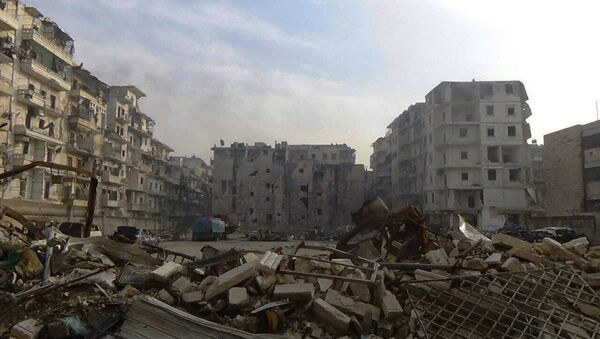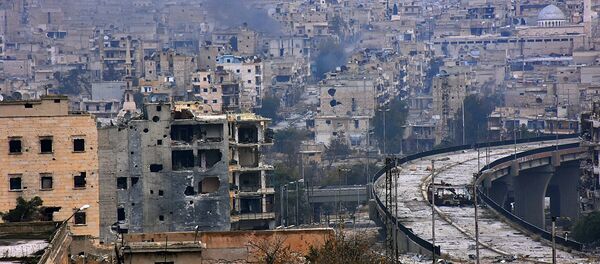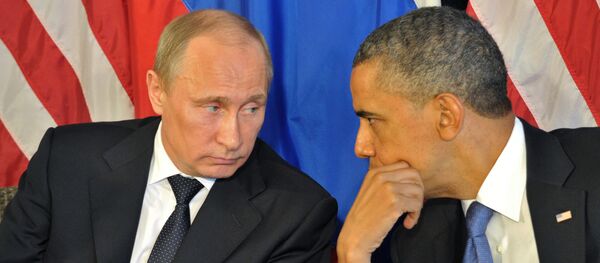A major agreement between the Syrian government of Bashar al-Assad and armed opposition groups was reached on Thursday and supported by Russia, Iran and Turkey as guarantors of the peace process. Russian President Vladimir Putin announced the news after emerging as a key peace broker. Last week, foreign ministers from Russia, Iran, and Turkey convened in Moscow to discuss resolutions that could bring peace and stability to the region.
"It was just reported that today, a few hours ago, an event occurred which we have not just been waiting for, for a long time, but which we've worked hard to bring about," Putin said, during a meeting with the Russian Foreign and Defense Ministers on Thursday.
All three parties attending the Moscow talks have vowed to "verify" and "implement" the ceasefire agreement, Putin said. "We realize these agreements are very fragile," he said, requiring "special care and patience" and a continued "professional approach" by Russia and its partners.
The ceasefire will apply to some 62,000 combatants in the region, Russian Defense Minister Sergey Shoigu said. Turkey, which has backed the opposition groups, and Russia, which has supported Syrian President Bashar al-Assad, laid the groundwork for a hotline communications channel for the sides to ensure compliance with the ceasefire, Shoigu added.
Turkish President Recep Tayyip Erdogan’s office stated Thursday that the truce represented an “important step to resolve the Syrian conflict.
While the US was notably excluded from the trilateral negotiations in Moscow, the State Department commented Thursday that the Kremlin’s deal marked a positive development. "Any effort" that reduces fatalities and "creates the conditions for renewed and productive political negotiations would be welcome," US State Department spokesman Mark Toner said Thursday.
Syrian President Bashar al Assad told Putin on Thursday that Syrian forces are prepared to observe the ceasefire deal, according to the Kremlin.
The current ceasefire will be followed by a comprehensive peace negotiations, according to reports. Kazakhstan’s capital Astana will host a peace conference, with the government of Syria and opposition factions participating, comprising "an important step"in "the ultimate resolution of the crisis," according to a statement by the Kremlin.
The ceasefire agreement arrived in the wake of several "successes achieved by the armed forces," according to the Syrian military. The liberation of Aleppo is seen to have proved a decisive sticking point in motivating opposition militants to work toward peace. The four-year Battle of Aleppo reached its end after President Bashar al Assad’s troops drove opposition groups out of east Aleppo. The Syrian people immediately broke out in celebrations spurred by the end of the brutal battle.
It was noted that 13 militant factions agreed to sign the five-point peace agreement, public relations official Osama Abu Zeid said Thursday, speaking in Turkey.
Staffan de Mistura, UN envoy for Syria, noted that "these developments should contribute to inclusive and productive intra-Syrian negotiations to be convened under UN auspices on February 8, 2017."




